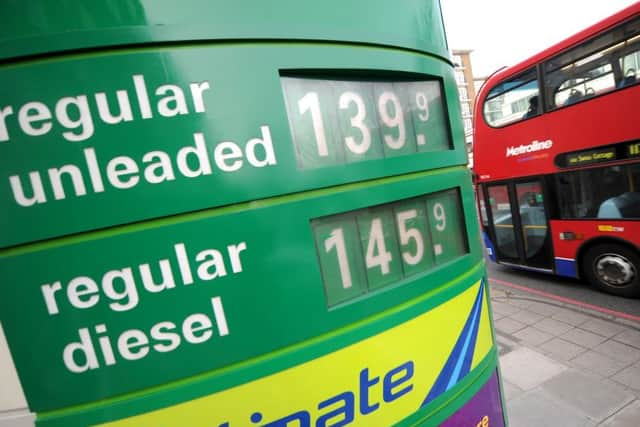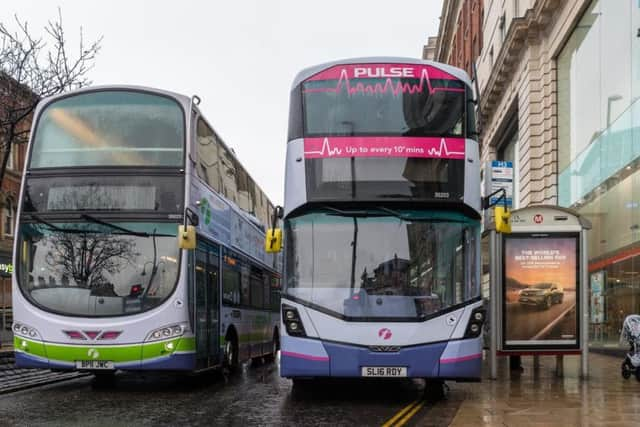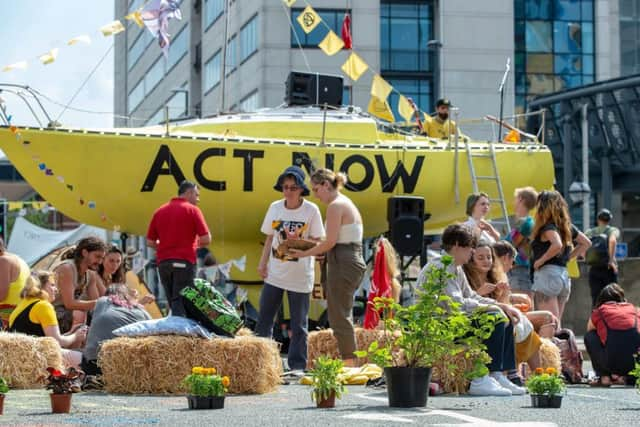Time to raise fuel duty to tackle climate change - Claire Haigh
However, speculation is growing that fuel duty could be cut in a pre-election budget. At a time when “hottest year” records are now broken as a matter of routine, should the Prime Minister even contemplate this?
Road transport is the largest emitting sector of the UK economy, accounting for more than a quarter of all UK greenhouse-gas emissions.
Advertisement
Hide AdAdvertisement
Hide AdIt is the only major sector where emissions are rising, largely due to the growth in demand for car and van travel.


Since 2011, fuel duty has been frozen. This means the price at the pump has been cut by 13pc in real terms.
The fuel-duty escalator was introduced in 1993 as an environmental tax to stem the increase in pollution from road transport.
Advertisement
Hide AdAdvertisement
Hide AdIf we are serious about tackling climate change and air pollution, we cannot contemplate cutting such taxes. Instead we should be raising them.


The direct consequences of the freeze in fuel duty since 2011 have been a four per cent increase in road traffic; 4.5m tonnes of CO2; the release of 12,000 tonnes of harmful nitrogen oxides and 816 tonnes of polluting particles and up to 200m fewer bus journeys and 60m fewer rail journeys. The freeze has also cost the public purse more than £50bn.
Government must do more to promote public transport. At the very least fuel duty should be linked to inflation in future budgets. The money raised from future increases in fuel duty should be ringfenced to accelerate the switch to electric vehicles and encourage greater use of public transport.
Advertisement
Hide AdAdvertisement
Hide AdLast month the Commons Science and Technology Committee concluded the Government target for net-zero by 2050 was undeliverable unless clean growth policies are introduced.


It called for the Government to reduce the cost of public transport relative to private transport. Government should develop a strategy to stimulate a low-emissions transport system with public transport at its heart.
The Committee on Climate Change (CCC) has said government policies will need to ramp up considerably – for example phasing out diesel and petrol cars should be brought forward to 2035 or 2030.
The CCC has highlighted the need for a national bus strategy, which was also the Transport Select Committee’s central recommendation following its recent inquiry into the health of the bus market.
Advertisement
Hide AdAdvertisement
Hide AdThe bus presents a major under-exploited opportunity to reduce emissions, grow our economy and create a fairer society. A modern diesel bus produces fewer harmful nitrogen oxides than a modern diesel car, despite being able to carry 15 to 20 times more passengers.
Every £1 invested in bus infrastructure can deliver £8 of wider benefit to local economies. A 10 per cent improvement in bus services delivers a 3.6 per cent reduction in social deprivation.
The bus has a central role to play in reducing congestion. In nose-to-tail traffic, emissions are up to four times greater than in free-flowing traffic.
Advertisement
Hide AdAdvertisement
Hide AdA double decker can take 75 cars off the road. However, current trends are leading us in the wrong direction. Congestion is rising and urban traffic speeds are falling by on average two pc every year.
There is no comprehensive strategy for the decarbonisation of transport. There is no national strategy for increasing bus usage or in-depth analysis of the potential contribution of mass transit to delivering UK carbon budgets. Important fiscal measures like using fuel duty to encourage fuel efficiency or moving to a system of road user charging are not considered. Instead, all the price signals are pointing the wrong way. The cost of motoring is falling compared to the cost of using public transport.
The imperative to act could not be greater. The five hottest years on record have occurred since 2010. The incidence of flooding, fires, hurricanes and drought is increasing alarmingly.
In response to the terrible fires in the Amazon rainforest, the Prime Minister joined other world leaders in re-iterating his commitment to the Paris Agreement. He has also set out his stall as a staunch advocate of public transport, saying he would “begin as a matter of urgency the transformation of bus services”.
Advertisement
Hide AdAdvertisement
Hide AdIt is time to put the Prime Minister’s words into action. Fuel duty should be raised to help bring about a transport revolution. At the very least, the Government should end the freeze and increase fuel duty in line with inflation.
Claire Haigh is chief executive of Greener Journeys.